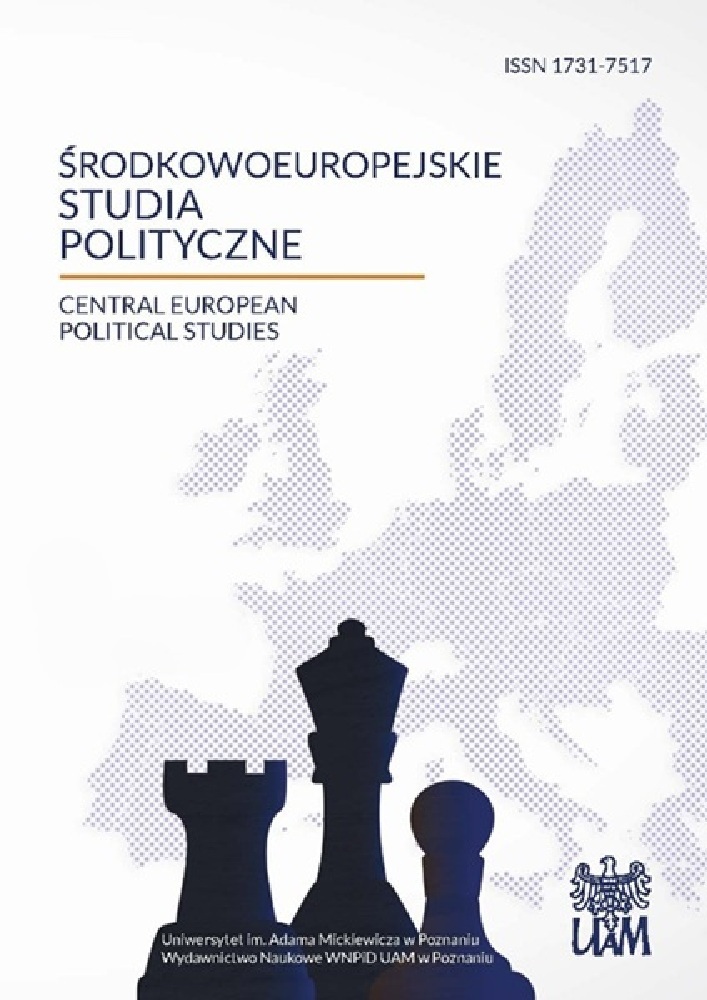Abstrakt
Over the centuries, Switzerland has developed a unique and inimitable statehood that functions in peculiar geographical, social and political conditions, shaped by the tradition of exercising direct forms of power. It appears, however, that these tools of direct democracy can sometimes obstruct the changes of utmost significance for the development of modern statehood and democracy. This was the case of granting voting rights to women. Although many European and other states granted the rights to vote and stand for election to women in the 1920s and 1930s, Switzerland needed much longer to introduce this change: on the federal level, women’s suffrage was granted as late as in 1971, and the last to enjoy the right to partake in the political life of their canton were the women of Appenzell Innerrhoden, granted the right in 1990. The objective of this paper is to analyze the influence of the mechanisms of direct democracy on the introduction of voting rights for Swiss women.
Bibliografia
Aidt T. S., Dallal B., Female voting power: the contribution of women’s suffrage to the growth of social spending in Western Europe (1869–1960), „Public Choice” 2008, no 134.
Banaszak L. A., Why Movements Succeed Or Fail: Opportunity, Culture, and the Struggle for Woman Suffrage, Princeton–New Jersey 1996.
Bundesbeschluss über die Einführung des Frauenstimm- und Wahlrechts in eidgenössischen Angelegenheiten. Chronologie, Schweizerische Bundeskanzlei, http://www.admin.ch/ch/d/pore/rf/cr/1970/19700220.html.
Chronology of Worldwide Woman Suffrage, International Museum of Women, http://www.imow.org/dynamic/press_pdfs/press_pdfs_pdf_144.pdf.
Conzett [-Knecht], Verena, 1.03.2005, Historisches Lexikon der Schweiz, http://www.hls-dhs-dss.ch/textes/d/D9285.php.
Fossedal G. A., Direct Democracy in Switzerland, New Brunswick–London 2009, s. 95.
Funk P., Gathmann Ch., What women want: Suffrage, female voter preferences and the scope of government, 2005, http://www.eea-esem.com/files/papers/EEA-ESEM/2006/337/Women_Suffrage.pdf.
Koźbiał K., Prawa wyborcze kobiet w Lichtensteinie, w: Kobiety we współczesnym świecie. Rola i miejsce kobiet w życiu politycznym, red. M. Musiał-Karg, B. Secler, Poznań 2010.
Kobiety we współczesnym świecie. Rola i miejsce kobiet w życiu politycznym, red. M. Musiał-Karg, B. Secler, Poznań 2010.
Ladner A., Size and direct democracy at the local level: the case of Switzerland, „Environment and Planning. Government and Policy” 2000, vol. 20.
Ladner A., Switzerland: Subsidiary, power-sharing and direct democracy, w: The Oxford Handbook of Local and Regional Democracy in Europe, red. J. Loughlin, F. Hendriks, A. Lidström, Oxford 2011.
Langer L., Panacea or Pathetic Fallacy? The Swiss Ban on Minarets, „Vanderbilt Journal of Transnational Law” 2010, vol. 43.
Linder W., Blaski i cienie demokracji bezpośredniej, w: Demokracja bezpośrednia. Szwajcarska demokracja modelem dla XXI wieku?, red. K. Koźbiał,Warszawa 2011.
Manz E., Die Wegbereiterin aller Bundesrätinnen, 24.07.2010, „Tages Anzeiger”, http://www.tagesanzeiger.ch/schweiz/standard/Die-Wegbereiterin-aller-Bundesraetinnen-/story/23894564.
Nationalratswahlen 1971–2011, Bundesamt für Statistik, http://www.bfs.admin.ch/bfs/portal/de/index/themen/17/02/blank/key/national_rat/wahlbeteiligung.html.
Programm der Sozialdemokratischen Partei der Schweiz, 1904, http://www.sp-ps.ch/ger/Media-library/AA-SP-Schweiz/Partei/Parteiprogramme/Parteiprogramm-1904.
Switzerland’s LongWay toWomen’s Right to Vote, History of Switzerland, http://history-switzerland.geschichte-schweiz.ch/chronology-womens-right-vote-switzerland.html.
Women’s long march to political parity, The Swiss Portal, http://www.ch.ch/private/00987/01052/01054/02321/index.html?lang=en.
Volksabstimmung vom 1. Februar 1959, Schweizerische Bundeskanzlei, http://www.admin.ch/ch/d//pore/va//19590201/index.html.
Volksabstimmung vom 7. Februar 1971, Resultate in den Kantonen Vorlage Nr. 224, Bundesbeschluss vom 09.10.1970 über die Einführung des Frauenstimm- und Wahlrechts in eidgenössischen Angelegenheiten, http://www.admin.ch/ch/d/pore/va/19710207/can224.html.
Licencja
Copyright
© 2012, Uniwersytet im. Adama Mickiewicza w Poznaniu, Wydawnictwo Naukowe Instytutu Nauk Politycznych i Dziennikarstwa
OPEN ACCESS
